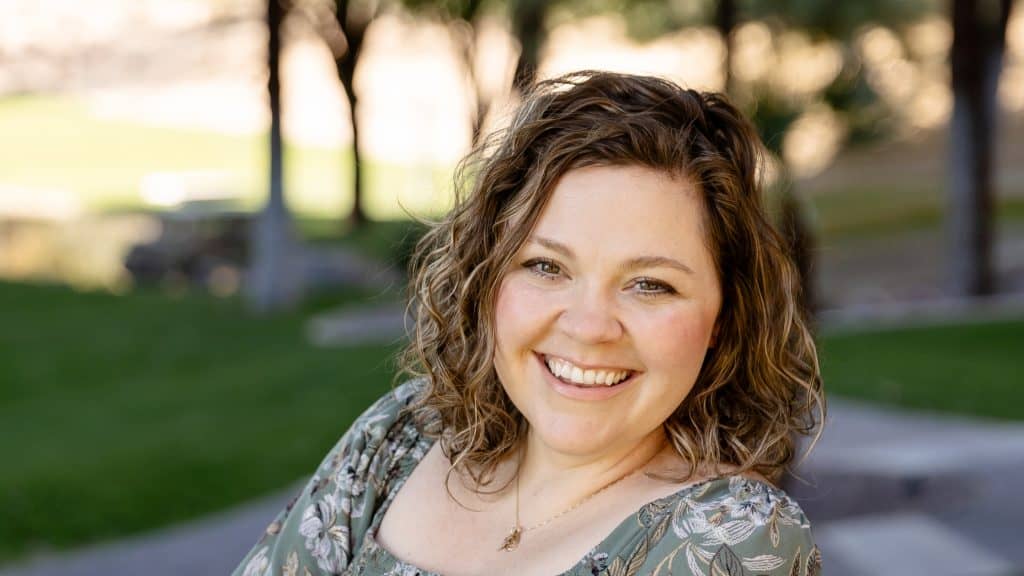We’re a little over halfway done with the year, which means that by now, over 80% of you who made a New Year’s resolution have long abandoned the road to [fill in the blank].
Wouldn’t it be great if we could simply program our brains and our bodies to achieve whatever goal we’ve set? But, it’s not that easy. James Clear said this,
Your life today is essentially the sum of your habits.
- How in shape or out of shape are you? A result of your habits.
- How happy or unhappy are you? A result of your habits.
- How successful or unsuccessful are you? A result of your habits.
What you repeatedly do (i.e., what you spend time thinking about and doing each day) ultimately forms the person you are, the things you believe, and the personality that you portray.
Now, we could push back some on any of those. For example, some people seem to have success just fall into their lap. But, those examples are the exception. Speaking generally, for most people, I think he’s right. Even from a religious perspective, my spiritual habits (or lack thereof) also shape my life (at least they’re supposed to!).
Stopping old habits and starting new ones is hard work. At Covenant Eyes, we have a pretty simple purpose. We want to help people to stop looking at porn. We create education and software tools to help people do this, and we’ve witnessed thousands and thousands of people break free.
What’s their secret? Well, I’m sure there are many things you could put on this list, but here are 10.5 things that are pretty consistent with just about anyone who is trying to make a new habit stick.
How to Make a New Habit Stick
1. Commit to something short-term. How many times have you said, “I’m never going to ______” or “I’m going to ________ every day for a month.” Just stop it. No you won’t! Is a week doable? What about today–can you commit to today? Start small and avoid the disappointment trap.
2. Get a buddy. On your own, you will fail! Yes, you will. Self-help is a recipe for self-fail (which is good for the self-help business). Find someone you trust, who will regularly check in and support you and keep you motivated when you’re not.
At Covenant Eyes, we call this “accountability,” which scares some people. Simply stated, it’s letting someone really know you. We’ve found the most powerful “trick” for forming a new habit is to live honestly and openly with someone else. Is it risky opening up to someone? A little. That’s why finding the right person is so critical.
3. Form a trigger. This might be called a “routine” or a “cue,” but it’s something that reminds you to do something else. For example, a trigger every good driver knows is a red light. When we see a red light, it triggers us to stop. An easy step to take here is to make a list of all of the activities that happen every day. It might look like this:
- Hit snooze on my alarm
- Take a shower
- Start the coffee maker
- Eat breakfast
- Brush my teeth
- Wash my hands
- Receive a text message
- Drink water
- Check social media
- Eat dinner
Since you routinely do these things, any one of them could be a trigger for some other, positive reminder or action. For example, every time I brush my teeth (trigger), I’m going to say, “I’m thankful for _______” (if you’re trying to develop a habit of being more positive). Or, if you’re wanting to form the habit of exercising regularly, maybe every time you receive a text message (trigger), you say to yourself, “I’m going to exercise today” (reminder) so the habit you’re trying to form is front of mind during the day. If you want to stop smoking, then maybe each time you think about smoking (trigger) you snap your fingers (new habit).
4. Leave reminders everywhere. Engage the power of the Sharpie and sticky notes.
5. Replace lost needs. If you are giving something up, then you’ll need to replace whatever need might have been addressed with the habit. For example, if you decide to stop drinking a beer when you get home from work, but that was a way to relax, then you’ll need to replace the relaxation void with some other form of relaxation.
6. Use the “but.” This one is great and is a subtle way to start taking control of your negative thoughts, especially if you’re trying to change an old habit. In the moment you start to have a negative, defeating thought, use the word “but” to interrupt it. “I might struggle at this, but I know that I can defeat it.”
7. Associate with role models. This is true in middle school and adulthood. Spend more time with the people who are modeling the behavior you want to acquire. This step might ruffle some friendships, for example, if your bar-hopping friend takes offense at your decision to stay home. But, there’s proof it matters.
In 2007, The New England Journal of Medicine released the results of a massive, multi-year study of 12,067 people who were closely followed for 32 years from 1971 until 2003. The study concluded that those who had obese friends were 57% more likely to become obese themselves. Dr. Nicholas Christakis, a physician and professor of medial sociology at Harvard Medical School and a principal investigator in the new study said, “You change your idea of what is an acceptable body type by looking at the people around you,” Christakis said.
8. Write it down. In the age of keyboards and technology, this seems old-fashioned, but the brain was wired for writing. Numerous studies all conclude the same thing–as far as the brain is concerned, writing something down acts as a mini-rehearsal for actually doing it. Scientists have shown that writing stimulates cells at the base of the brain called the reticular activating system (RAS). These cells are partially responsible for our overall focus and consciousness.
Writing seems to cause the brain to have greater focus on that which we are writing about, unlike typing on a keyboard. In Write It Down, Make It Happen, author Henriette Anne Klauser says that “Writing triggers the RAS, which in turn sends a signal to the cerebral cortext: ‘Wake up! Pay attention! Don’t miss this detail!’”
0.5 (BONUS): Use your favorite writing utensil. A friend of mine has her “sacred pens” that must be special ordered and are off limits to her four children. But, she loves using them, which makes the writing process more enjoyable. I don’t have scientific evidence to support this, but I bet the brain really likes writing with pens you like using (at least that’s my justification for buying expensive pens).
9. Visualize the pain. With any bad habit, it’s worth asking the question, “What is the absolute worst thing that could happen to me if I don’t change?”
For example, if you are a father addicted to pornography, the answer to that question might be, “My daughter might catch me using porn.” Or if you’re an alcoholic, “I might kill a friend of mine while driving drunk.” If you honestly assess the possible consequences, it might act as added motivation for habit change.
10. Celebrate often. The brain likes rewards. This is part of our survival wiring to keep doing things that are beneficial to our survival. It’s important to celebrate even small, positive steps forward. Celebrating begins to create the positive neurological enforcement necessary for habit change. For example, if you floss your teeth (new habit), take the extra step of saying “Victory!” in the mirror.
Do you have any tricks that have worked for you? We’re always curious to know what people are doing to live better, so please let us know.
We’ve created Overcome Porn: The 40 Day Challenge specifically to help those struggling with online porn to break free and start healthy habits. It pulls together the best advice we’ve ever published on how to break free from the seemingly endless cycle of porn. It provides you writing prompts, helps you track your progress, and will soon celebrate your achievements along the way.
Make your new habit stick, and start the challenge today!








grat work being done
Certainly if you want to make a new habit stick, a big part of the ingredient is spending time with the Lord in His Word and Prayer. Jesus says, “Without Me you can do nothing.” But with Him and with a life committed to doing His will, we can make real progress.
Hi Stephen, I agree with you of course! We have many different types of users, and I wrote this post to a general audience, so that even those who approach habit change from a secular perspective might appreciate the advice.
Peace, Chris
I’m a S.A fellow in Europ. I’m eventually sober ’till I met S.A meetings.
Thank you for your courage and work with people who want to overcome addiction.what are your thoughts on S.A….SEX ANONYMOUS ?
Hi John – I’m glad some of our information is helpful. S.A – a good group. I’m sure you’ve read about them online, as I have just now, since I don’t have much specific knowledge about them. They are secular, if that matters. But, it’s a “step” (12 of them) in the right direction. Oppression of the urge isn’t going to work for everyone. Our energies and desires were meant to terminate somewhere – I believe they were meant to terminate on God.